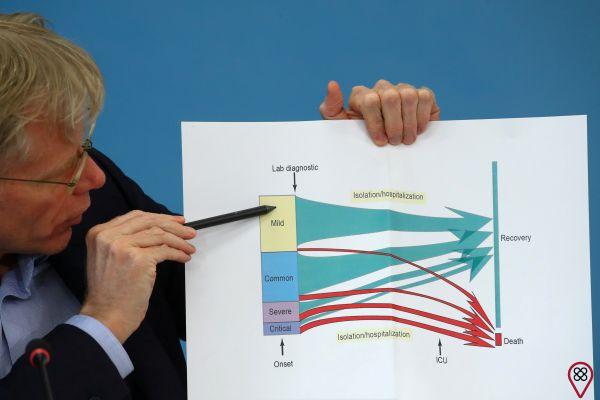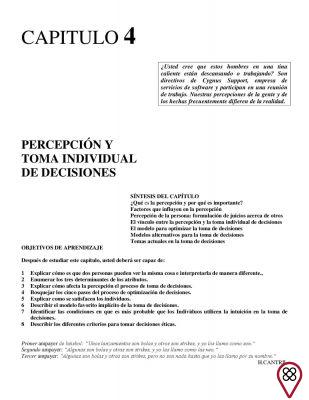Narcissists are included among individuals in a category known as “viral people”, due to their movement around harmful actions that both fill them with negative emotions and contaminate others with whom they have contact. They usually put those who know them, therefore, in a posture of permanent self-defense, not only to avoid being a victim of their “maneuvers” but also to protect the emotional, exposed to all sorts of “weathers” due to the results perceived in the environments in which they work.
Living, then, with the toxicity of these people interferes even in the way we start to look at the world from how they behave, or through the unpleasant phrases that we are forced to hear in a simple everyday conversation, as they are always belittling absent people. or complaining about what they are experiencing at that very moment. It is not difficult to understand, therefore, the internal reaction of not answering the phone, having on the cell phone the name of the person calling, due to the feeling that, for sure, nothing good will come out of the conversation. At the end of each contact with such people, we almost invariably ask ourselves that classic question: “Do I need to be here listening to this kind of thing?”.
So, it is clear why narcissists are often included in the list of “viral people” that we need to avoid, if we want to preserve our inner peace, since it takes a lot of resilience to live with them without being affected in some way, as they behave just like a virus that enters the body, spreads quickly, and then starts to harm us. And even if we make use of the medicine that can overcome it, it is certain that, for some time, we will still feel its effects.

The causes for a person to be a carrier of Narcissistic Personality Disorder are still not well elucidated by science that deals with mental health. The consensus among experts is that it results from factors associated with genetics, social environment or neurobiology, or even a combination of these three elements. Supporters of the genetics thesis believe that NPD passes from parents to children because of some hereditary characteristics. Others argue that a congenital predisposition could be aggravated or not by the social environment, from disagreements in childhood relationships, such as excessive criticism or exaggerated dedication of those directly responsible. These opposites could either be the cause of a child needing to prove his ability to the world or one that doesn't develop the mechanisms that normally prevent people from doing everything they want.
A third group of researchers — those who attribute its origin to neurobiology — sees a disorder of a behavioral nature arising from the individual himself, in which a temperament prone to challenging the “status quo” forges a distorted worldview, which provides a feeling of pleasure in troubled and tense environments. It would be a kind of self-protection against childhood traumas and fears, which the narcissist would not want to experience on a conscious level.
Like any mental disorder, it is very difficult for an outside observer to determine whether there is a cause unrelated to the process of choices we all develop. It becomes easier to attribute antisocial behavior to problems of a cognitive nature (the individual does not know the rules), moral (the individual deliberately defies the rules) or emotional (arising from feelings such as selfishness, envy, aggression, irresponsibility, lack of empathy or respect for the other) that make living together difficult.
Narcissists, as we know, are people who routinely introduce victimism into their relationships, notably in conflict situations. Classified as “passive virals”, the profile involves people who blame those around them for all the evil that happens to them, exempting themselves from any responsibility for the results they reap or the circumstances that gave rise to them. In this way, they develop a special talent for making those closest to them feel guilty for the vicissitudes they face.
Seeing others better off than they are, they are adept at making us feel terrible for enjoying what they don't have. Feeling wronged by life and more deserving than anyone else, they compensate for this feeling of inferiority by trying to prove that they always “turn around”, becoming extremely possessive with everything they introduce into their lives – whether things or people – since unable to distinguish one thing from another. Both are seen as “possessions” and nothing more, except for the fact that one can react and the other cannot.
As is easy to see, narcissists are superb, hence the name given to the disorder. Even the favors they wish to obtain from others are never explicit, always disguised under a veil of “grant” given to their benefactors, as if to give them a chance to feel better for their generosity. In other words, they are always the ones doing the favor, not the ones helping them, as they are never attentive to the needs of others if not to create another “debtor” in their usual “take it, give it” scheme.

As they do not maintain bidirectional relationships, they take what they can from others without waiting for the consent of their rightful owners. They are selfish and self-centered, and the moment their needs are not met, the victim becomes the target of attacks, criticism and emotional blackmail. Living with the narcissist, therefore, causes people to have a constant feeling that they are being abused, and they will have to get used to the idea if they do not want to live in a permanent “state of war”.
It can be said that there are only two things that uninterruptedly occupy the narcissist's thinking: what he wants and what others have to fulfill his desires. Apart from that, they have nothing else to occupy themselves with, and it is not possible to find more content in their minds than is necessary to meet their own needs. No one will see you making authentic references about someone's qualities, especially those that relate to personal values, ability to achieve and competence, since the growth of others is something that bothers you terribly.
The reason for this is that its mental structure is that of a parasite that feeds on what it can extract from anyone who puts itself within its reach. Hence their inertia in the face of any objective that requires personal effort and persistence for some achievement, or projects that require a long period to be achieved. All of his goals reveal characteristics of instant reach, which do not require time or effort to be achieved in the short term. This is due to the fact that they do not seek things for the value they represent, but for the advantages they can obtain by displaying them. A good description of such a posture is that of the person who, not having the disposition or talent to become a good swimmer or invest the time required to become one, buys medals on which he records "victories" in tournaments he has never played, just to show off. them to others.
Brought into everyday practice, the narcissist is that kind of person who jumps from one project to another without finishing any. If you start a training course, for example, you will try to tell everyone about the course you are taking, but, in a very short time, the subject will die without anyone knowing why, and that is what will make others aware that, like everything he's been into, this one didn't make it either.
It can be concluded, then, that the life of the narcissist is an endless succession of meteoric “successes” followed by resounding failures. He comes up, from time to time, with startling revelations of “accomplishments” out of nowhere., but who soon after “leave the scene”, in a way incomprehensible to the people to whom he bragged about them at the beginning, and they will only know the reasons for other people who, by chance, became aware of what happened.

Almost systematically, both the rise and fall of the narcissist are due to a defining characteristic of his personality: the “thirst with which he goes to the pot”, in an attempt to extract everything he can, and in the shortest possible time. This makes him run over himself and “put his feet in his hands”, due to the speed with which he takes possession of everything he has access to in the new position, impacting those who are close to him. Frightened by the rapid growth of the snake he fed, it is possible to understand the sudden collapse that follows the meteoric rise.
The most surprising thing, too, to the people around him, is the “smokescreen” that the narcissist throws over all events, forging a climate of “absolute normality” for everything that happened between the rise and the fall, in that short period. of its trajectory, since, by him, no one will hear a single word about it, and, also, nothing would be known, if it were not for the mouth of those who witnessed it, some time later. And, of course, this would be the factor in the narcissist's life that would act most in protecting future victims, as he leaves behind him a huge list of successes and failures that follow one another interminably.
But as everything has a “but”, the verbs placed in the past tense are due to the fact that the new “flies”, invariably, never bother to know beforehand the trajectory of their “favorite spider”, enchanted by their seduction maneuvers. And don't expect the role of alerting them to be assumed by people close to the "spider": knowledgeable as they are of how everything happens, they know, in advance, that they will be getting into a huge trouble, both because of the anger provoked by the spider and the frustration of the fly, which will accuse them of “meddling where they were not called” out of envy, spite, or even to prevent it from living the cherished dream of the “Prince Charming” with which the narcissist beckoned him.
You may also like
- See how narcissism intoxicates a relationship
- Pay attention to signs of psychological violence
- Remember the first episode of "The troubled relationship of a spider and its fly"
It is not difficult to understand, then, why the narcissist's corrosive personality finds every door open to new attempts to seduce his victims, regardless of how many closed doors he has left behind: this is due to his enormous power to make his " flies” do not hear anything that they are already predisposed to disbelieve, the moment they put their feet in the web of their opportunistic and cunning “spider”.
Keep following the series
You are in episode X

























